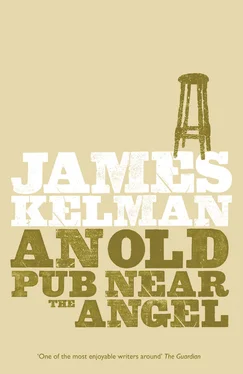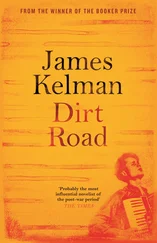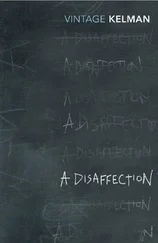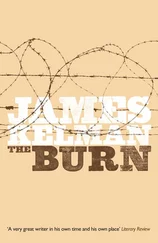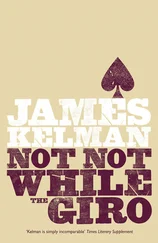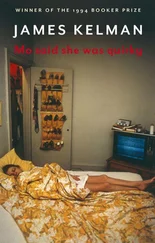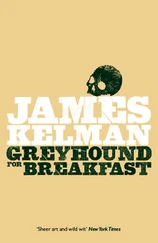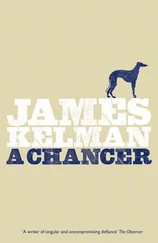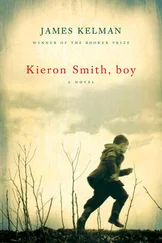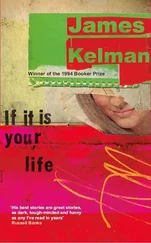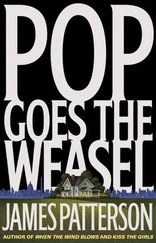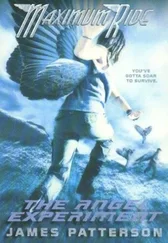James Kelman - An Old Pub Near the Angel
Здесь есть возможность читать онлайн «James Kelman - An Old Pub Near the Angel» весь текст электронной книги совершенно бесплатно (целиком полную версию без сокращений). В некоторых случаях можно слушать аудио, скачать через торрент в формате fb2 и присутствует краткое содержание. Издательство: Birlinn Ltd, Жанр: Современная проза, на английском языке. Описание произведения, (предисловие) а так же отзывы посетителей доступны на портале библиотеки ЛибКат.
- Название:An Old Pub Near the Angel
- Автор:
- Издательство:Birlinn Ltd
- Жанр:
- Год:неизвестен
- ISBN:нет данных
- Рейтинг книги:4 / 5. Голосов: 1
-
Избранное:Добавить в избранное
- Отзывы:
-
Ваша оценка:
- 80
- 1
- 2
- 3
- 4
- 5
An Old Pub Near the Angel: краткое содержание, описание и аннотация
Предлагаем к чтению аннотацию, описание, краткое содержание или предисловие (зависит от того, что написал сам автор книги «An Old Pub Near the Angel»). Если вы не нашли необходимую информацию о книге — напишите в комментариях, мы постараемся отыскать её.
was published and the rest is history. The US edition has never been out of print.
An Old Pub Near the Angel — читать онлайн бесплатно полную книгу (весь текст) целиком
Ниже представлен текст книги, разбитый по страницам. Система сохранения места последней прочитанной страницы, позволяет с удобством читать онлайн бесплатно книгу «An Old Pub Near the Angel», без необходимости каждый раз заново искать на чём Вы остановились. Поставьте закладку, и сможете в любой момент перейти на страницу, на которой закончили чтение.
Интервал:
Закладка:
He had just retired when we came to stay there but his house was full of old library books, most of which were written by Lloyd C. Douglas and Edgar Burroughs, but included a few by John Steinbeck, Erskine Caldwell, Walter Greenwood and A.J. Cronin. I could borrow any I wanted and he always enjoyed a chat.
After he died his widow let me take what I wanted. I have to confess there were not too many I did want, but a few I still have. The circumstances surrounding his death were sad. Mrs Bradford had been away staying with relatives and he was alone. We had not seen him for a few days. Myself and Frank McGoohan, the upstairs neighbour, were banging on his door. Then we forced it in. He took one side of the flat and I the other. I found him dead, in the act of getting into his bed. He had the alarm clock in one hand and must have been setting the alarm, and just sank back when the heart attack hit. I stood there looking. Frank came ben to tell me that a taxi had just drawn up on the street and Mrs Bradford was getting out. We had to move quickly, meet her on the stair, take her into my house.
This part of North Woodside was full of life forty years ago; small businesses by the score. Butchers, bakers, carpentry shops, chemists, drapers and domestic repair shops; secondhand bookshops, launderettes, chip shops, newsagents and dairies; a sweetie shop, a crockery shop, secondhand furniture stores; many pubs, bookies, pawn shops, fish shops and licensed grocers: all within five minutes from the foot of my close, and from South Woodside Road to St Clair Street, taking in Henderson Street, Mount Street, Carrickarden Street and Dick Street. We did not need Great Western Road or Maryhill Road. I am not even including Raeberry Street in this, although I recall the Shakespeare Bar served three-course lunches for 2/6 around 1972. Nah, my memory is surely defective on that one.
When my family returned from the States things were tough and my mother needed to go out to work. But doing what? She began the long haul to become a teacher. She secured the necessary Highers at day school then entered Teacher Training College. Napiershall Street Primary School was a short walk from my close. My mother taught there from the late 1960s for a period of six or seven years. It was her first job since 1942. My elder daughter Laura was one of her pupils for a year. She was under instructions never to greet her in the playground and never to say ‘grannie’ in the classroom. She was allowed to give secret smiles.
I was good friends with Frank McGoohan, my upstairs neighbour. He was divorced, a few years older than me, and lived alone. The last couple of days before payday he was always skint but rarely accepted Marie’s offer to come in for his tea. He was another reader, and was writing a novel based on his conscription days with the military. After Marie he was the next person to see my stuff. We passed our writings to each other. Frank was fond of English poetry, Keats and Shelley. He could not thole some of my spellings in ‘Nice to be Nice’. My rendition of ‘Wedinsday’ just fucking annoyed him. We agreed that ‘Wensday’ was more exact. But I argued that ‘nsday’ was just a glottal stop and I had to reject it. The central character in ‘Nice to be Nice’ is narrating a story from his recent life but assumes an audience and shifts his pronunciation accordingly: he resists glottal stops.
After a few pints discussing all that in the Gowdoc Bar with Frank, the Creative Writing class at Glasgow University Extra-mural Department was a doddle.
The possibility of revising my early stories of course has occurred to me. I find it impossible. The author of An Old Pub Near the Angel is in his early twenties and with his characters right at the heart of the experience; a smoke, a meal, sex, a beer, the next bet, a relationship. At the same time he — the author — was trying to be a proper parent and husband, helping prepare the bottle, doing a feed, changing the nappy, telling a bedtime story.
I was happy doing all that. I enjoyed it very much. I loved seeing my daughters grow up. Before publication of the book I became friends with Tom Leonard who had two sons. We had disagreements but shared an outlook that included a way to conduct yourself as artist, husband and parent. None of that writer-as-adolescent shite: acknowledge the responsibilities and try to cope. I think we further agreed that if it was impossible to be both artist and father there was something wrong with art. I doubt if we would share that opinion nowadays.
The writing crowded in. I was chewing the nails until I could get my work out on the kitchen table, or spread on the carpet, to sort through the pages. Reading yesterday’s first draft was always an exciting experience. The lack of working time was a continual source of stress, as it still is. The frustration worms its way through rage and bitterness, and can lead to breakdown, and silence. I returned to the lives, as well as the works, of writers and artists, particularly Franz Kafka. He too appreciated the early novels of Knut Hamsun.
I saw it as the fundamental and shaping struggle in each, the need to do your work in the face of the socio-economic reality. There was no place in society for your work, as with Cézanne, van Gogh and the rest. Your only requirement was to do their work. Who the fuck were they? These bastards. Who wants to do their work? Let them do it themselves, tell them to go and fuck.
Young writers seek bonds of solidarity with older generations; we look for things in common. If a writer comes to mean something to us we want to discover affinities. How did they live their life? What hardships did they endure to pursue their art? How long did it take them to write a story? Kafka did The Metamorphosis in a couple of nights. Oh, I don’t believe it, no, no, for godsake, no.
Yes. Now pick yourself up, brush yourself down. Van Gogh did not even begin until he was 28. And look at Tolstoy, a hero at 22, a hero at 72. Phew.
The biographies I read back in my teens proved worthwhile in context. I have been an atheist since 12 so I do not know where the Lives of the Saints lead ye, but the lives of the artists lead you to other artists, philosophers and other thinkers. Cézanne’s life led me to Émile Zola; then van Gogh’s letters, Turgenev’s essaying; through Kafka’s journals you go everywhere.
Yet I still found difficulty in connecting with writers who had no reason to worry about money and job security. I was prejudiced against Turgenev for years, until it dawned on me how influenced I had been by Dostoevski’s judgment, arrived at through a suicidal gambling habit. I would have sat down for a game of poker with Dostoevski but knew I would not have enjoyed it. I aye imagined him jumping up from the table and flinging a cape round his shoulders, This is too slow, too slow! and marching out into the night.
When I read Mary Gray Hughes’ first collection, The Thousand Springs (Puckerbrush Press, 1971), I was very taken with the title story. It is set back in time and takes the form of the diary of a young woman surviving in desperate circumstances. She is the wife of a smallholder barely eking out a living from the land, just about coping with running the home. Her son is gravely ill, perhaps close to death. And the woman is trying also to be a writer, a writer who loves literature, who loves other writers. She is fighting for her own time and space, that point in the evening when the chores are done and she manages a clear 15 minutes. That is what she can count on: 15 minutes. During that brief period she will go at it and take from it what she can. At the end of the story we discover that the young woman did not ‘become’ a writer, but her son did.
I think of another literary hero, Agnes Owens. What if Agnes had been ‘granted’ a proper chance to write when she was fighting to rear her family? As if it was not enough of a burden raising eight children, she spent years going out to work in whatever capacity, servant to the middle classes, clearing up their domestic mess. When she saw the squeak of a chance she grabbed it and produced those great stories that we know. How much more could it have been?
Читать дальшеИнтервал:
Закладка:
Похожие книги на «An Old Pub Near the Angel»
Представляем Вашему вниманию похожие книги на «An Old Pub Near the Angel» списком для выбора. Мы отобрали схожую по названию и смыслу литературу в надежде предоставить читателям больше вариантов отыскать новые, интересные, ещё непрочитанные произведения.
Обсуждение, отзывы о книге «An Old Pub Near the Angel» и просто собственные мнения читателей. Оставьте ваши комментарии, напишите, что Вы думаете о произведении, его смысле или главных героях. Укажите что конкретно понравилось, а что нет, и почему Вы так считаете.
